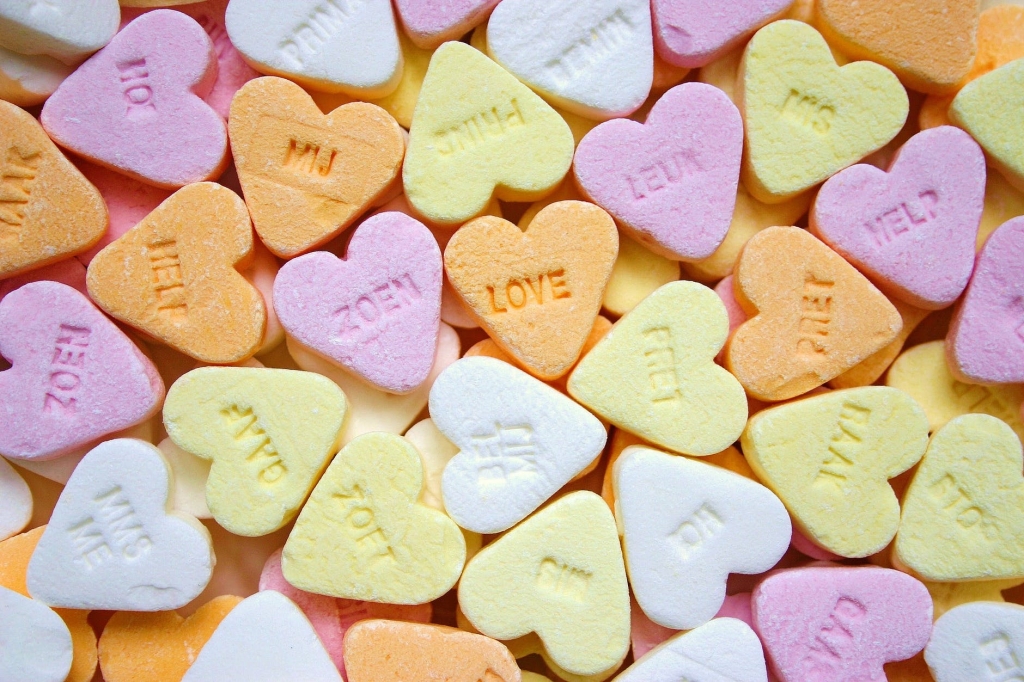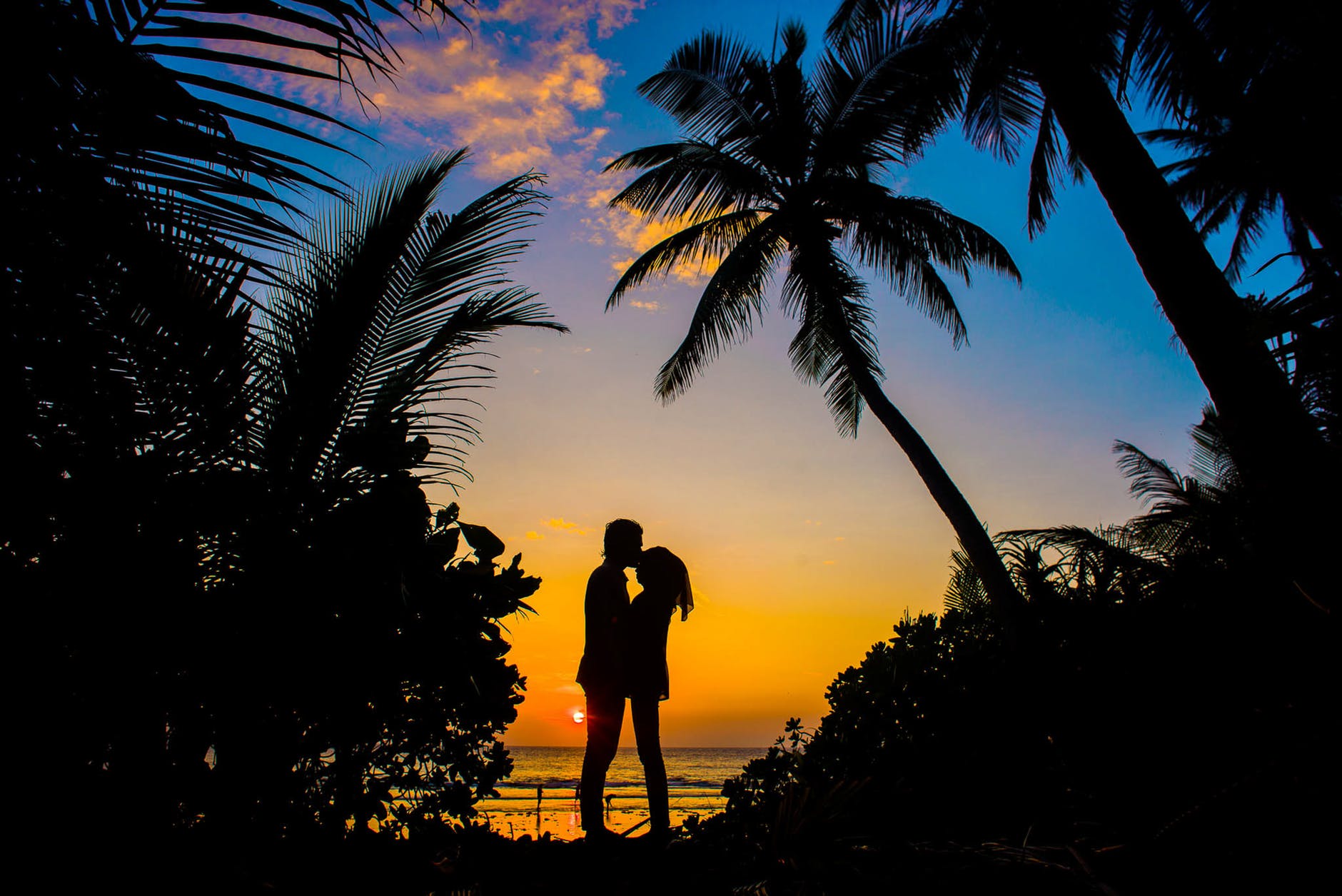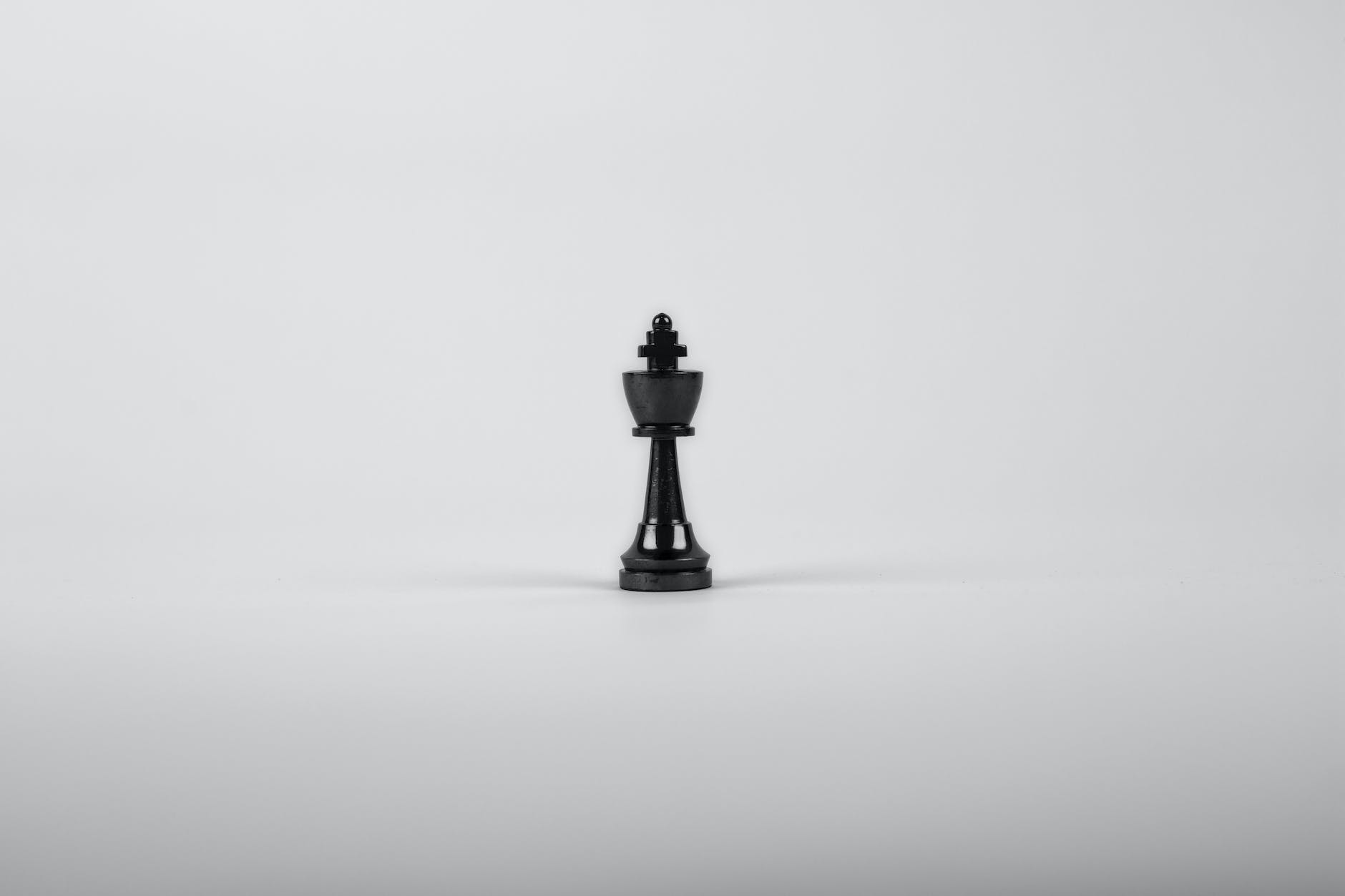To reference the book series that famously fell from the sky authorless, it was like love and romance were magic and I was the only muggle in the world.

I never thought I would write this article. I never thought I would write this article because I’d never read this article, despite spending a chilling amount of time online in my twenties. To me, that meant only two possibilities: one, I was the only person in the world who had ever experienced this; or, two, everyone else going through it knew it was too shameful to speak about.
There is a concept in sapphic culture of the “gold star lesbian”, which means you have never slept with a man. It’s problematic on many levels, not least in its inherent biphobia, but you could, to make a tenuous analogy, say I was a “gold star single”. As in, I was completely single – not-by-choice – until I got into my first relationship at 31. Not just ‘between relationships’ single, or even ‘I’ve never been in a relationship’ single. Like, single single. Like, entirely, totally, unwillingly, not-aromantic or asexual, almost never-been-kissed (see below), never asked out, never flirted with, nothing nothing nothing. A ‘there isn’t even a word for it’ single. A gold star single.
To be completely accurate, I actually had my first ‘kiss’ around the age of 24. I had a hard week at work, drank a lot more than I usually did and went to a club with my friend. Somehow (okay, the booze) I ended up very close to a fellow clubber and engaged in a motionless pressing of mouths for about three awkward seconds before he politely pulled away, placed his hands on my shoulders with a pitying expression of “oh dear…” and walked away.
My second kiss came at the age of 28, another awkward encounter, with the only man I met from Bumble in a brief burst of The Bachelor Australia-inspired dating app optimism (Matty J and Laura’s season, trust me). The details are mercifully hazy but it was next to a roundabout on a freezing night in London and felt just as nothingy as the first one, an anatomical combination of lips at the end of a spark-free date that had zero effect on my insides, but left me feeling icky and with a raging cold for the next two-and-a-half weeks.

Photo by Asad Photo Maldives on Pexels.com
This was the sum total of my romantic experience in my teens and twenties. I have found that clarity is important in these discussions, because when trying to talk about this aspect of my life, people sometimes struggle to grasp the concept. By the time you’re in your mid-twenties, it is pretty much assumed you will have had sex (despite the fact that according to a 2018 study, one in eight 26 year olds in the UK have not). But more than that, it is definitely assumed that you will have kissed someone you wanted to kiss and enjoyed it. That you will have fancied someone and had them fancy you back. You will have gained a modicum of understanding that you are desirable on some level, whether you are able to internalise it or not. Trying to explain that there has been none of that can be a challenge.
Worse, though, is that once people have understood, they often have no idea what to say to you. Hearing that I’m “brave”, or “so independent”, or my personal favourite, that I must have “such high standards” got grating long ago. My therapist told me it took courage to choose to forge a different path in life (I wasn’t trying to) and when I had a smear test and had to tell the GP I had never been “sexually active” she got momentarily flustered and ended up saying something along the lines of “well, I think that’s great, actually, we’re all having TOO MUCH sex if you ask me!”
To me, given that it was my own lived experience, it didn’t actually feel that weird. As far as I could tell, in other ways I wasn’t any different to my peers. I was fun, knew how to dress, took an interest in popular culture and sports, had a professional job, and could make people laugh. I have built good, lasting friendships in my life. I had dreamed of love and relationships since I was a horny tween obsessing over the boys in my class (and pushing down thoughts about the girls). I wanted all the “normal” things. They just didn’t happen.
I found myself surrounded by a funny sort of benign gaslighting. My coupled-up friends and family, who were (and are) kind people trying to say the right thing, would end up reassuring me that I’d find someone, that my single life was enviable, that having a partner wasn’t all it’s cracked up to be anyway. And, sure, some of those things are true. Every relationship is more complicated than it looks, and there are many completely valid reasons to choose to be single, not least that single women live longer, happier lives. But the point is, I wasn’t choosing it. I wasn’t trying to be any different to anyone else.
Despite my couple friends’ best efforts, I could never shake the cold, hard truth that any of them could have chosen to be single any time they wanted, and they didn’t (again, this is a huge oversimplification, but neuroses don’t tend to speak in nuance). From my perspective, they knew that being in the relationship they were in was preferable to being like me. I wanted what they had and I didn’t understand why I wasn’t allowed to have it. It felt like there was something about me that I couldn’t see that made me, at some core level, entirely unworthy of love. In other words, it felt shit.
If that sounds melodramatic, let me put it another way. Imagine every year that goes by watching everyone around you have first kisses, first heartbreak, drunken snogs, one-night-stands, office romances, engagements, weddings, and all you are left with is a list of potential reasons why nobody wanted those things with you. Is it because you’re shy? Too tall? Awkward? Unfunny? Weird? Ugly? Boring? Annoying? It must be something, because you’re the only one who was left behind, untouched.
I became obsessed with working out which of my flaws was insurmountable for the same reason that people around me were so keen to tell me they were proud of me for my “lifestyle choice”. If my singlehood was my fault, or my choice, then maybe I could do something about it, and non-single people don’t have to contend with the fact that maybe their relationship wasn’t written in the stars at the beginning of time. If there is a cause we can point to – whether it’s “I’ve got unforgivably strange knees” or “they’re choosing to be single” – we can comfort ourselves with the idea that life is not totally random. It’s a natural human instinct, but it’s the same instinct that leads people to ask what an assault survivor was wearing when they were attacked, or to tell someone grieving a loss that everything happens for a reason. It’s an instinct that brings comfort to the wrong people.
*
I remember one of the first times I read an account from someone I could relate to, on the BBC News website in 2018, with the inauspicious title The sadness of living without sex. It was such a moment in my life that I can still picture where I was when I saw it – idling on my phone on the sofa in a Yorkshire holiday cabin, where I would watch the Duke and Duchess of Sussex’s wedding on TV the following day. Several people of varying ages had written in to tell their stories of having their first sexual experiences later in life or not at all. It was a strange feeling to finally know there were people out there like me, but in the context of having it confirmed that my personal life was weird to the point of literally being newsworthy.
That article was published in the wake of a high-profile terror attack in Toronto. Back then, any discussions I saw online about involuntary celibacy tended to involve men in the so-called “incel” movement, described by The Guardian as “a deeply misogynistic online subculture that at times called for rape or other violence.” Last August, five people were shot dead in Plymouth by a man who had spent a decade involved in incel forums, one of eight incel-inspired mass murders worldwide so far. Ironically, the term “incel” was coined in the nineties by a bisexual woman who wanted to find a word to describe her experiences of not having had a relationship and created an online community for people in the same position, only for it to get hijacked over time by darker (male) elements after she left. It is immensely frustrating to know that women were trying to speak out about lifelong singlehood nearly thirty years ago. Perhaps that could have led to a more inclusive and well-rounded society, but instead here I was decades later reading about how long-term single people are tragic or terrorists, if I read about them at all.
In the last few years, I have seen a long-overdue cultural shift. On Valentine’s Day this year, Glamour published the piece I’d been trawling through Google searches to find throughout my twenties: “I’ve never had sex, a boyfriend, or even my first kiss – and I’m not sure I ever will. Here’s why I’m totally fine with that.” This article by 24-year-old writer Mollie Quirk was what I’d needed for over a decade. Being single can be isolating by its nature, but being lifelong single made me feel like an alien hidden in plain view. To reference the book series that famously fell from the sky authorless, it was like love and romance were magic and I was the only muggle in the world.
Women are starting to share their experiences of singlehood more than ever. Nicola Slawson’s The Single Supplement newsletter – which was where I was first linked to Mollie’s article – and community has been nothing short of life-changing. In her own words, freelance journalist Nicola set up the newsletter in 2019 “after she got sick of the lack of quality content out there for independent women. She wanted to read articles and opinions that didn’t patronise her or assume she was miserable or desperate”. As soon as I read that description I smashed the subscribe button and haven’t looked back.

Photo by Sebastian Voortman on Pexels.com
Because despite what mainstream culture wanted me to feel, I wasn’t miserable or desperate. I felt ashamed and weird about it sometimes, sure, but I had a good, full life of friendships, theatre trips, netball games, singing in a choir. I wanted to be in a relationship, but understood that it might not be in my future and was gradually trying to come to terms with that. The Facebook group for Single Supplement subscribers is a place where thousands of people who might be ‘the single one’ in their group of friends can find solidarity and advice on all sorts of topics from social infertility to the best spider-catchers for arachnophobes who live alone (this one). The majority of people in the group – and Nicola herself – have previously been in some form of relationship, but reading their posts helped me to see the many positives to single life, and, crucially, to get more comfortable with the uncomfortable idea that it’s okay to want something while knowing it might not happen.
*
As Brooklyn 99′s Captain Holt famously told bisexual icon Rosa Diaz:, “every time someone steps up and says who they are, the world becomes a better, more interesting place.” While I would hesitate to make a blanket analogy about ‘coming out’ as someone who’s never been kissed, in my case there was a level of crossover between my queerness and my lack of experience. In fact, I ultimately felt more comfortable coming out as queer than writing publicly about my relationship status, although they were inextricably linked.
What’s the point in telling people I’m not straight if I’m not dating anyone anyway? Or worse (to me at the time), if I come out as bisexual, will everyone assume I’m actually gay and hiding it and that this is why I’ve never dated? Was everyone thinking that the whole time regardless? And how can I even know I’m bi if I have never tried any of it?
I’m sure I would have been able to come out to myself sooner had I been actively dating people and I’ll never not be a tiny bit sad about that.
By far the most helpful resource I found in my coming out journey was seeing people in the same position as me, in their late twenties or older, on the same path. Watching Patrick having his first kiss with a guy on Schitt’s Creek and reading many first person coming out accounts helped me realise I wasn’t alone.
After David and Patrick have their first kiss, Patrick says “I’ve never done that before… with a guy.” I cannot tell you the extent to which I was internally screaming in that momentary pause. One day, I dream of seeing a mainstream television show featuring a character who has their first ever kiss in their late twenties or older, in such a casual, understated, romantic way. The stories of people who find romance later in life – or not at all – are only just starting to be told.
I’d love to say that Mollie’s article and Nicola’s newsletter inspired me to finally write about this subject, but that just wouldn’t be the truth. The truth is, the only reason I feel able to put any of this into words outside of countless angst-filled diary entries is because I am currently in a happy relationship. And that might be the part I feel the most ashamed about, that I know in my heart that if I wasn’t, I’d still be too scared to put myself out there and start breaking the code of silence.
The last thing I want to be is another person saying “it’ll happen for you, look at me!” or “it happens when you stop looking!” or “there’s someone for all of us!” or any of the other trite encouragements that people throw at us. I don’t presume to have any advice at all for those in my former position (except joining the Single Supplement Facebook group if that’s something you’d be into). They don’t need it.
Romantic love is not something that everyone who wants it gets to have. But I know that my life had immeasurable value when I was single and can confirm that its value remains unchanged regardless of my relationship status. In a funny way, I wish it hadn’t taken losing my gold star to finally believe it.

A single positivity reading list
The history of the single positivity movement goes back further than you think
These Filipino Women Have Never Had Boyfriends and They Couldn’t Be Happier
“We’ve been groomed to believe being single is wrong. It’s not”: why we need to rethink singledom
Why Single Women Don’t Have To Be Nice About Being Single
Why ‘virginity’ is a damaging social construct
Young, fun and… alone? The problems with the ‘single positivity movement’
